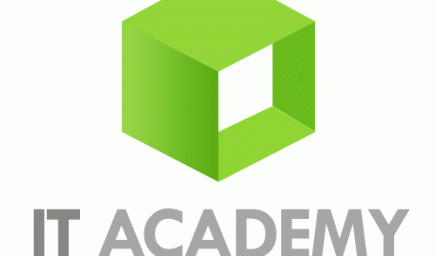Obsah kurzu
Overview
- This training course with accredited materials from YES4Q is aimed at software professionals who need to demonstrate practical knowledge of the fundamental concepts of testing. This basic-level course focuses on the most widely accepted approaches to software development and testing.
- This course will provide you with the fundamental principles and best practices of testing while taking into account modern industry trends. It covers common software testing vocabulary and principles, design techniques, testing management and support tools. Whether you test software full time or as part of Agile, DevOps or continuous delivery, this certification course is designed to help you prepare for the ISTQB Certified Tester—Foundation Level (CTFL) certification exam.
- An accredited training course that covers updated ISTQB Certified Tester Foundation Level 2018 v3.1 syllabus.
Course Outline
Fundamentals of Testing:
- What is Testing?
- Why is Testing Necessary?
- Seven Testing Principles
- Test Proocess
- The Psychology of Testing
Testing Throughout the Software Development Lifecycle:
- Software Development Lifecycle Models
- Test Levels
- Test Types
- Maintenance Testing
Static Techniques:
- Static Testing Basics
- Review Process
Test Techniques:
- Categories of Test Techniques
- Black-box Test Techniques
- White-box Test Techniques
- Experience-based Test Techniques
Test Management:
- Test Organization
- Test Planning and Estimation
- Test Monitoring and Control
- Configuration Management
- Risk and Testing
- Defect Management
Tools Support for Testing:
- Test Tool Considerations
- Effective Use of Tools
Course Objectives
Upon the successful completion of the course, the delegates should be able to:
- Promote efficient and effective communication by using a common vocabulary for software testing.
- Understand fundamental concepts of software testing.
- Demonstrate understanding of how different development and testing practices, and different constraints on testing, may apply in optimizing testing to different contexts.
- Contribute effectively in reviews.
- Use established techniques for designing tests at all test levels.
- Analyze both functional and non-functional specifications at all test levels for systems.
- Examine test design techniques including black-box testing, white-box testing, and experienced-based testing.
- Interpret and execute tests from given test specifications. Report on test results.
- Understand the test management principles including test organization, test planning and estimation, configuration management, risk-based testing and defect management.
- Write and communicate clear and understandable defect reports.
- Understand the project factors that drive the test priorities and test approach.
- Understand the value that software testing brings to stakeholders.
- Appreciate how testing activities and work products align with project objectives, measures and targets.
- Explore tool support for testing including tool selection, benefits, risks, and classifications.
The course is interactive and utilises multiple learning styles to increase the memory retention of the material.
Who Should Attend
- This course is suitable for anyone who needs to demonstrate practical knowledge of the fundamental concepts of software testing including people in roles such as Testers, Test Analysts, Test Engineers, Test Consultants, Test Managers, User Acceptance Testers and Software Developers.
- This course is also appropriate for individuals who need a basic understanding of software testing including Project Managers, Quality Managers, Software Development Managers, Business Analysts, IT Directors and Management Consultants.
Course Benefits
- Understanding of software testing, standard terminology.
- Establishes your proficiency in Software Development and Testing.
- Increases your visibility and makes you a more valuable member within your organization.
- Demonstrations, hands on exercises, exercise solutions, lecture segments and discussion retrospectives.
- Detailed and structure report from the course providing management with observations, potential risks and weaknesses, and ideas for improvements.
- Certificate of Completion: YES
Details
- Duration: 3 days
- Price: 675 EUR/person without VAT
- Price for 5+ groups: 540 EUR/person without VAT
- Language: Czech or English
- Level: Basic
- Requirements: The candidate should have a basic working knowledge of IT. It is strongly recommended that candidates also have at least a minimal background in either software development or software testing, such as six months of experience as a system or user acceptance tester or as a software developer.
Odborný garant:
Petr Neugebauer
Kurz je spojený s pobytom:
nie





 Chcem hodnotiť
Chcem hodnotiť
